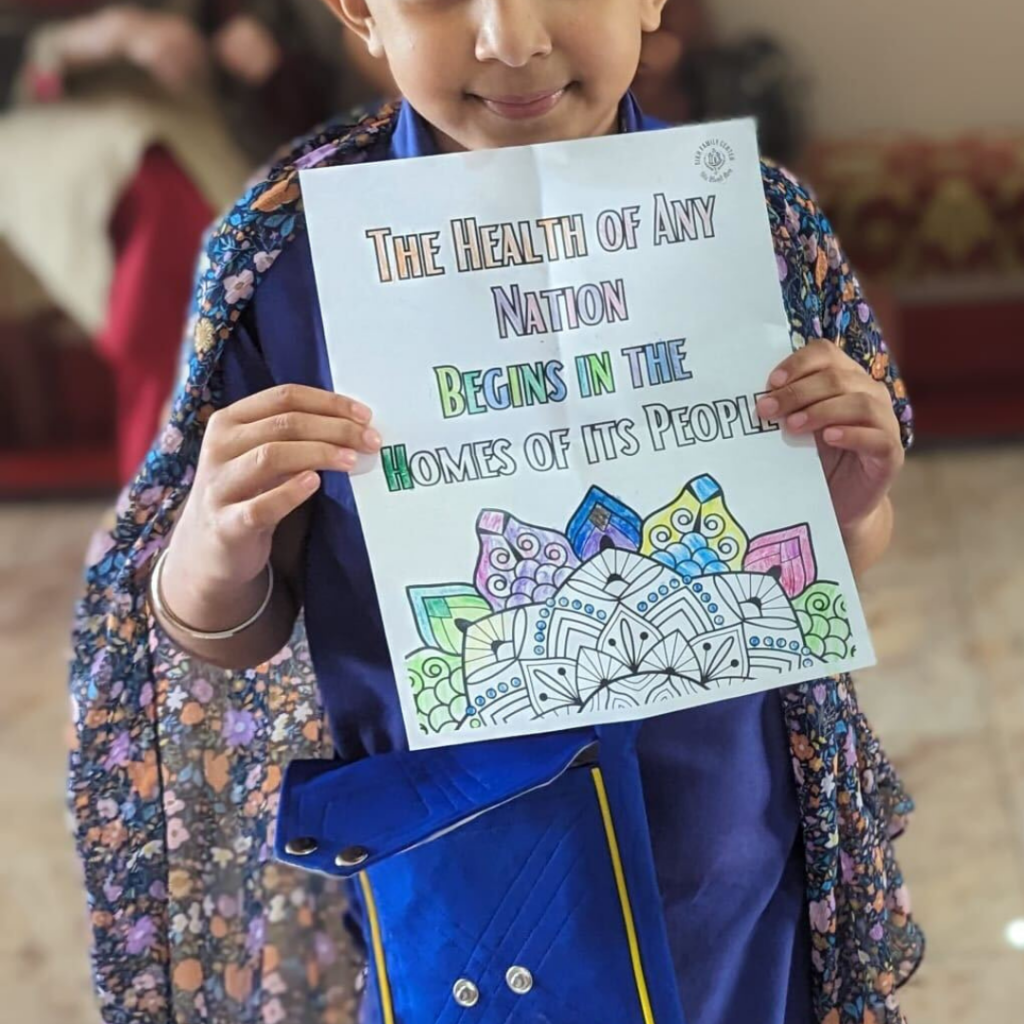…working to change the social and cultural conditions that allow gendered violence to occur in the first place.

What is Project Khesi?
Khesi translates from Punjabi to a type of warm blanket, especially worn by men. “Project Khesi: Weaving Warmth and Safety,” specifically and intentionally calls in (versus “call out”) men & boys, often not included in discussions around ending gender-based violence. Through its warmth, Project Khesi hopes to raise issues of gendered violence in our families that otherwise proliferate in shadows as well as also create an ongoing conversation to intervene on unhealthy dynamics, preferably before they become a vicious cycle.
Sikh Fathers Answer “How Do You Want Children in Your Life to Remember You?”
Putting fatherhood on our collective agenda and raising awareness about healthy parenting is a powerful gift to the entire Sikh community!

Children grow and learn from the adults around them, especially those that they trust and respect. Adults are responsible for supporting children and providing them safe nurturing environments. Unfortunately, our children also live in a world where some adults engage in a range of actions known as Child Sexual Abuse (CSA).
Sikh Parents Respond: Speaking to Kids about Safety
Teach Your Child Body Autonomy (Booklet)
Body autonomy is the right to decide what happens or doesn’t happen to your body. Teaching your children from a young age to develop a sense of body autonomy is a proven way to prevent child sexual abuse, and also encourages children to disclose abuse should it happen to them. The booklet includes tips on how to talk to your children about body autonomy.
Sangat members and volunteers engage in a unique participatory theater experience, known as Theatre of the Oppressed. This art form allows audiences and performers to navigate and explore community-relevant experiences.

Sehj Series Workshop 1: Conversations on Boundaries, Consent and Relationships
Workshop 1 explores these topics
Sehj Series Workshop 2: Communication, Self-Awareness & Relationships
Workshop 2 explores these topics
Contact
National U.S. Helpline
866-SFC-SEWA or (866)-732-7392
Sikh Family Center is a national nonprofit organization in the U.S. that promotes community well-being with a particular focus on gender justice. We provide trauma-centered resources for victim-survivors of violence while working to change the social and cultural conditions that allow gendered violence to occur in the first place. Our training, outreach, and advocacy are grounded in cultural tradition, grassroots power, and intergenerational healing.
All Rights Reserved © Sikh Family Center